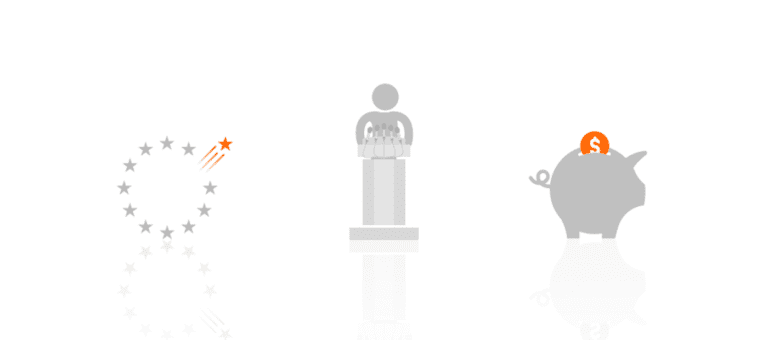Last Updated on August 17, 2022
Europe had it’s fair share of difficulties in 2019 and from the looks of it, many of those issues will continue to trouble it this year as well. Let’s take a look at three of the major challenges the continent, and especially the European Union, will need to confront in 2020.
Brexit
Most people assumed Britain’s exit from the European Union could be over and done with in just one year and those who did were in for a big disappointment. During this timeperiod the Palace of Westminster saw government crises, resignations, re-negotiations, attempted do-overs of parliamentary votes and obstruction among other things. All of these are part and parcel of a democratic country’s political process. It also showcased the type of gridlock that can occur when a country’s leadership is split almost exactly down the middle with neither side being able to move forward with the agenda they perceive to be in the country’s best interests. What broke the stalemate was the sweeping electoral victory of Boris Johnson and the Conservative Party. After acquiring a majority in Parliament last December, they wasted no time before pushing through a resolution to “get Brexit done” and leave the European Union before December 31st, 2020. The UK population’s voting preferences clearly show that the average voter is mostly interested in putting the whole Brexit ordeal behind them already. Given the current state of affairs there’s a good chance of that happening. Our prediction is that by the second quarter a 2020 there will be an exit agreement signed by both parties. Once that’s over, the British pound will stabilize and European markets will be at ease again. Businesses will also be able to plan for the future once the exact terms of the agreement become known.
National Politics
2020 will be Germany’s turn in the rotation for the European Commission’s Presidency. For the next six months President Ursula von der Leyen will find herself in the unusual situation of having to check with her country’s government to see if they support her decisions. Even without the Commission President, they’re still one of the most influentional countries in the EU. Many people have pointed out that the Chancellor Merkel of Germany and President von der Leyen are not on the best of terms, however, both of them are also known to have enough professionalism to be able to work together efficitently, despite their differences. Germany is also feeling a lot of pressure from the various from environmentalist movements, which aren’t satisfied with Brussels’ efforts to combat climate issues. They also have to deal with the rising political tensions over the question of immigration, especially in the easten provinces of the country. This is an especially pressing matter for the Merkel-Leyen duo, because it’s necessary for them to be able to maintain the power of the CDU/CSU party union in Germany. Meanwhile French President Emmanuel Macron has been dealing with an enless series of street protests that suggest the French population is moving in a different direction than the powers that define the EU’s future. What makes the EU’s situation even more complicated is the election of nationalist politicians in Central- and Eastern-Europen countries. For them it’s a means of demonstrating a sense of self-determination. Many of these countries still find themselves hesitant or possibly unwilling to cooperate with a large top-down international alliance like the EU. They still carry a lot of baggage from the Soviet era that might only ease up after several more generations. Harmony within the European Union is in short supply. Having Germany take the wheel in the EU might be what they need to become a more cohesive unit, since Berlin’s authority is the only one that can match that of Brussels.
Economy
Although the EU continues to be the world’s second largest economy after the US, Brexit and China’s economic growth put their position at serious risk. At the same time they remain the commonly cited ideal example of of a functional social safety net. Unfortunately said safety net also comes with a massive price tag. The European Union is also the major economic power that puts the largest emphasis on trying to actually tackle climate issues in practice. Their economic policy actively aims to try and change their economic structure in a clearly defensive strategy. The goal isn’t economic growth, but to ensure the survival of environmentally friendly industries. These policies include support for renewable energy, passive houses, recycling, emission quotas and other strict regulations. Right now all of these measures are all obstacles to economic growth, however, they could instead turn to advantages if changes in climate really will have a severe impact on the working of economic systems down the line. At the very least it indicates that Europe is willing to sacrifice short term economic growth for the potential of a long term return. The consequence of that commitment is that their GDP growth will remain slow this year while their government spending continues to rise. It also means that they’ll need to maintain their negative base interest rates. Another factor to consider is the population’s conscious shopping habits that result in little retail sales growth and low inflation. If Europe maintains this pattern then it might end up almost into a restort: a place that’s nice to live in, but not a particularly attractive investment choice.
